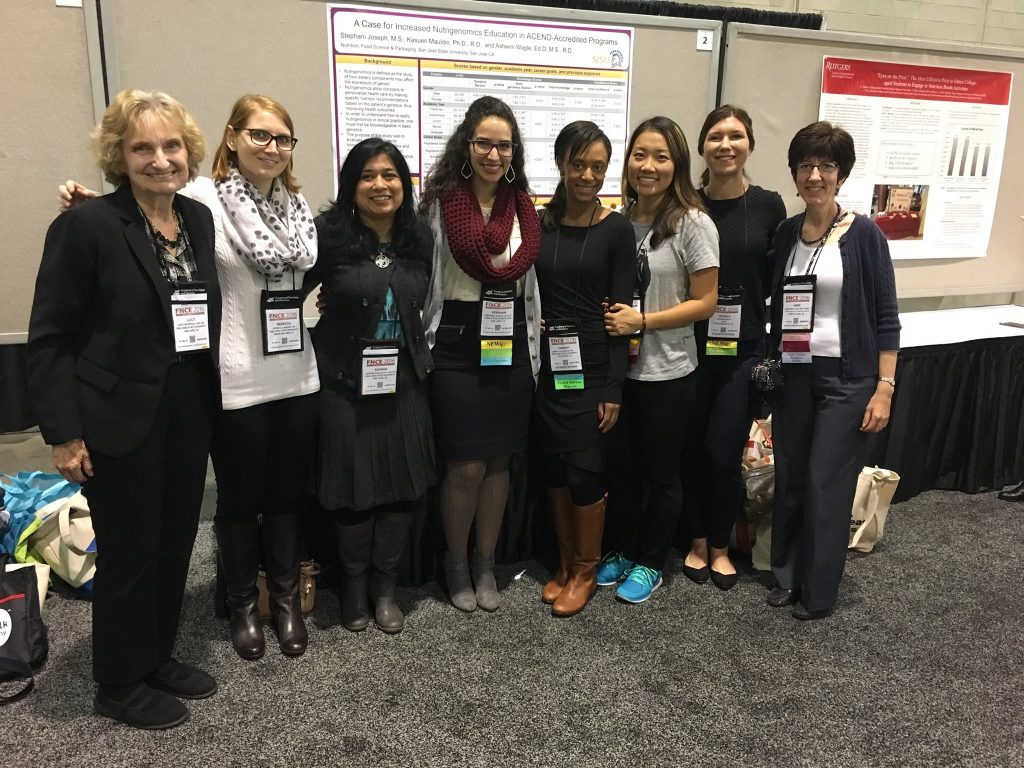
If you visit a health care facility, school district, or food bank there is a good chance that an SJSU Nutrition, Food Science and Packaging student is completing an internship. That’s because Nutrition, Food Science and Packaging students are required to obtain an internship working in their field.
When students enroll in the Bachelor of Science in Nutritional Science program, they can specialize in two concentrations which includes a concentration in dietetics or packaging. They can also specialize in environmental food and health, food management, nutrition education, nutrition science and sports nutrition.
“The Dietetics students who go on to become Registered Dietitians have to complete 1,200 hours of accredited competency-based dietetic internship program as well as pass the national Registered Dietitian Examination,” says Dr. Lucy McProud, Chair, Department of Nutrition Food Science and Packaging. “In addition, after completing a dietetic internship, students must take a national exam to become a registered dietitian.” SJSU’s program boasts a 90 percent passing rate on the exam and according to Dr. McProud “all get employed.”
The Nutrition and Food Science program teaches students about nutrition aspects that includes food borne illnesses, diet and disease and community nutrition. If students want to major in the sports field, they learn which foods can help an athlete’s best performance.
Professor Karen Harvey, lecturer, teaches four classes in the program and is also a consultant dietician. She is especially fond of teaching Nutrition 139 Hunger and the Environment. “This class is a current events class where we discuss poverty in our community. Unfortunately, this topic has become more and more relevant,” says Professor Harvey. “Right now there is such a need and so many students are hungry that we have five food banks on campus.”
Professor Harvey has a master’s degree in nutrition specializing in dietetics and also works for Nutrition Therapy Essentials. “Our interns are all over the place,” says Professor Harvey. “By requiring an internship, students can transition to see what the job is all about and if they really want to go in this direction.”
Many universities do not require an internship in a nutritional program. “If students are enrolled in a program that requires them to have an internship, they have a much greater chance of getting an internship,” says Professor Harvey. “And they also have a greater chance of passing the registered dietitian exam.”